- Home
- Paul Finch
Craddock
Craddock Read online
CRADDOCK
by
Paul Finch
KINDLE EDITION
PUBLISHED BY
Ghostwriter Publications
Dorchester, Dorset DT2 8QD
www.ghostwriterpublications.com
Copyright © 2010 by Paul Finch
Kindle Edition License Notes
This ebook is licensed for your personal enjoyment only. This ebook may not be re-sold or given away to other people. If you would like to share this book with another person, please purchase an additional copy for each person you share it with. If you're reading this book and did not purchase it, or it was not purchased for your use only, then you should return to www.amazon.com and purchase your own copy. Thank you for respecting the author's work.
*****
CRADDOCK
CONTENTS
Introduction
The Magic Lantern Show
The Coils Unseen
The Weeping in the Witch Hours
Shadows in the Rafters
INTRODUCTION
These are the first four adventures of my Victorian detective, Jim Craddock, and it’s a joy to see them all collected under one heading.
I could wax lyrical about the various inspirations behind these tales – everything from the ghost stories of Charles Dickens, to M.R. James, to Wilkie Collins, Sheridan le Fanu and Sir Arthur Conan Doyle. Quality antecedents, I suppose, but believe it or not it was actually a risk writing these stories back in the late 1990s and early 2000s, simply because ‘drawing room’ supernatural fiction – for want of a better term – was deemed to be a tough sell in the age of in-yer-face horror. Not that I consider the Craddock stories to be in any way ‘drawing room’ fiction. They owe to my own police experience as much as they do to my fascination with English folklore and Victorian mysteries, so there are plenty of hard edges in these tales. Please don’t expect a comfortable ride.
Even so, I was surprised at how popularly they were received. I’d almost felt guilty penning yarns that I didn’t believe there would be an extensive audience for. You can thus imagine how gratifying it is to see Major Jim Craddock – a veteran of Queen Victoria’s army in India, now working as police detective among the coal tips, cotton mills and filthy, teeming slums that covered the raped landscape of nineteenth century northern England, and specialising of course in the odd, the uncanny and the downright nightmarish – finally get a volume all to himself.
I hope you enjoy this little bundle of period perils. If you do, rest assured, there are more such adventures in the pipeline.
Paul Finch, December 2010
THE MAGIC LANTERN SHOW
In the frosty chill of dawn they came. Down the narrow alleys between the mills. From the sewer-pipes and basements. Lifting snowy grates, wheedling out from their black and crowded burrows in the spoil and slag, in the brick chasms between the tall, leaning houses, in the coal-bunkers, the railways sheds, the rubble-cluttered arches where the ice hung in spears.
Major Craddock watched from astride his horse at the head of Frog Lane, the sturdy animal blowing out steam, pawing the frozen cobbles. The man felt the cold far less than his mount did. Veteran of the Afghan frontier, his topper, scarf and heavy greatcoat with the thick shoulder-cape were enough for him. So he sat comfortably and watched the beggar boys as they crawled from their holes and limped through the snow in ragged, barefoot bands, huddled together in knots, yet chattering like apes with the joy of Christmas morn.
At the turn of the road, a swathe of cindery wasteland around it, stood All Saints workhouse. Its tall windows were aglow with candlelight, yet it was still a dismal place, built from blackened brick, its roofs steep and made from broken slate. Here and there, gutterings sagged loose, shreds of dead vegetation hung down from clefts in the stonework. A high wall, topped with rusty spikes, hemmed in the structure. A single gate of iron railings was open at the front.
For two full hours the paupers trooped in, in their ones and twos, some hanging back at first, but all at length succumbing to the festive promise. Eventually, when only stragglers remained, the major urged his animal forward. With slow, clipping hoof-beats he made his way. If his ominous figure was frightening to the urchins, they didn’t show it. Grizzled, filthy, hair sticky and matted and hanging to their shoulders, and in all cases clad in tatters, they might normally be a wary, untrusting bunch, but not so on this occasion. Giggling, screeching, heads filled with hot tea and plum duff, they passed through the gate, oblivious to all else.
The major reined up to watch the final few, scanning their haggard faces for a certain single youth who maybe was different from the rest. At least a hundred had now entered, but scarcely one differed from another. Pale as ash, withered to the bone, masked in grime, to a one they’d aged years beyond their time.
Beside the gate, two men were arguing volubly. The first, stocky and red-bearded and bundled up in a greatcoat, muffler and bowler, was squaring to a balding man, much heavier-set, with steel-grey curls on fat jowls, and a leather apron over his bottle-green tailcoat. At first, they’d spoken to each other civilly, but now their words were heated. The man in the apron was shaking his head vehemently, making sweeping gestures with his hands.
“Problem, Munro?” the major wondered.
Inspector Munro turned sharply. “Not really, sir. This is Mr. Lensop. Master of the workhouse. He insists the boys be bathed.”
“Rules is rules, sir,” said the man in the apron. “We always baths them first. Health regulations.”
Major Craddock didn’t trouble to look at Mr. Lensop. He knew about this petty official; how vocational he felt his position in the parish, how zealously he went about the Lord’s work, how obsessively he believed in the usefulness of whipping. Major Craddock had approved many floggings in his army days, but that had been for hardened combat troops whose negligence had endangered comrades, not frightened orphans whose only crime was hunger. A time might come when he’d have to look a little closer at Mr. Lensop.
“No baths, Munro,” he said simply, before riding on through the gate.
Inspector Munro turned back to Lensop.
The official was bewildered, but still defiant. “I’m sorry inspector, we can’t have that. There’s a risk of infection. We run a clean house, here.”
Munro shrugged. “Like I told you, sir, we need physical evidence. If our man is among this lot, and you wash him down, we’ll lose it all.”
Lensop shook his head, perplexed. “Really, sir – I can’t see there’s any hope. These children are starved. There’s not one of ‘em strong enough to throttle a cat.”
“That’s not for us to say, is it sir? We have to turn every stone.”
Lensop began to bluster. “It won’t do. The Board of Guardians won’t like it. They have strict rules.”
Munro smiled. “So does Major Craddock. And he’s Chief Officer of Police in Wigan. The Board must take it up with him.”
It was not Major Craddock’s preferred way to spend Christmas Day, but since the death of his wife, Abigail, on the malarial plains around Lucknow, the joyous season held little interest for him.
He’d once read a book by that journalist chap, Dickens. The narrative had been fresh and invigorating. It told of a diseased human soul transformed one Christmas Eve by several ghostly visitations. Much of it, of course, had been a fantasist’s ideal, and Major Craddock didn’t hold with that. Besides, this fellow Dickens was a reputed radical, and in some previous book, about a scrounger and thief called Twist, had derided the police as bumbling bullies, no better than the villains they fought.
As far as Craddock was concerned, his men were anything but. Handpicked for the most part, back in 1850 when he’d first taken this post and been charged with reorganising th
e small, demoralised and often drunken borough police force, the ex-soldier had brought them fresh from one old and traditional uniform service, the 14th Light Dragoons, into this relatively new one, firstly because he knew and trusted them, and secondly because they were the right stuff for it. It went without saying that survivors of the bloody Ferozeshah, Chillianwalla and Goojerat campaigns were tough and resourceful, but the boys he’d chosen had also been noted for their even tempers, fair-mindedness and, above all, quick wits. Civvy Street was not the army, especially in a town like this, where poverty and resentment were written in the millstone grit upon which it was built. Awareness and sensitivity were required, and, up until now, Major Craddock was convinced they’d got it right. The last few months, however, had strained their collective nerve to breaking point.
He led his horse through the workhouse yard and around to the rear of the old building, where he left it with Constable Coogan, who was waiting there by pre-arrangement. Like most of the other officers on duty that day, Coogan was in plain clothes and armed, a ten-bore shotgun resting by the metal post where he tethered the major’s horse. Craddock checked the six-chambered Smith and Wesson under his coat, then entered the building by a rear door, trotting up a narrow stair to a high gantry, dark, dusty and hung with webs, but overlooking the main hall. Three more of his men – Butterfield, Duckworth and McDougal – were already there, concealed behind iron stanchions. Their muskets were at the ready, each one an army issue ‘Brown Bess’ – old-fashioned in the age of the Springfield rifle, but the best he could do at such short notice.
Below, the stone-flagged hall was a hive of activity. Numerous trestle-tables were laid out for a knife-and-fork dinner, while the new arrivals, unused to the discipline of the institution, surged around them, clamouring for “vittles”, slamming cutlery on table-top, ignoring the shouted commands from the matron and her helpers. The occasional ‘crack’ of hand on face, birch-rod on buttock was lost in the mayhem. Master Lensop bullroared to no avail. The house inmates, a pale, shaven bunch, distinctively clad in shapeless cotton smocks, were ranged around the damp walls on benches, having already dined and now watching the rowdy newcomers with fascination. Such a thing had never been seen in the parish workhouse before; the homeless hooligans of the street – those who had consciously opted for the gutter rather than charity – invited en masse to share in the yuletide repast and the traditional magic lantern show to follow.
Wild cheering went up as wooden trolleys appeared. There was a sudden smell of cooking, and steam swirled out from the kettles and the cauldrons of potato broth. Major Craddock moved slowly along the gantry, having quiet words with each of his marksmen. Not one had seen anything suspicious yet; not that he’d expected them to from way up here. More likely his ‘spotters’ – other constables, equipped with sidearms, but dressed in the red jackets and charity caps of parish orderlies, and even now stepping cautiously among the urchins – would be the ones to make contact. Thus far, however, there was nothing. Major Craddock wasn’t unduly worried. There was ample time.
He turned and glanced through the barred window behind him. The town’s skyline was drawn black on the glacial sky: smoke-pouring stacks, flywheels. The town might only be small – eighty-odd thousand at the last census – yet on most days it was teeming, its deep, narrow streets thronged with people and their animals, jostling back and forth with wagons and carts. Three main railways and a network of canals, eternally alive with traffic, fed its raw industrial life.
For once, though, it was quiet. Usually, the din was stupendous: the shunting-crash of locomotives, the toot of klaxons, the clash of hooves and clog-irons, the bang and screech of falling, dragging crates. But on this special day, with the morning market done and all business closed, scarcely a bird was moving. As the major watched, slate grey clouds drew over and fresh snow began to fall, a pristine mantle forming on the gaggle of streets and courts, on the steep terraced roofs, on the heaped broken slag by the pitheads. Despite this, there was no feeling of Christmas peace. Major Craddock wondered if his quarry was still out there somewhere, or even now among them, feasting with the beggar boys.
Wigan was never a tranquil place at the best of times. Only one of numerous smoky citadels in the Lancashire heartland, where cotton and coal vied for kingship, it bred social turmoil as a by-product. But now an entirely new shadow lay over it.
The first murder had occurred in the mud and rain of late October.
Every peeler in town knew James O’Hare, the burly, two-fisted Irishman of St. Patrick’s Road, Scholes, the low-rent and lodging-house district, the worst slum, in fact, in the entire slum-ridden town.
O’Hare was a legend even in that neighbourhood, and there were few sorry that sodden morning, when a patrolling constable emerged from a rubble filled alley on the bank of the Leeds-Liverpool Canal, to find the dangerous individual floating face down. By the time Craddock arrived, the body, its clothing heavily waterlogged, had been hauled out and now lay on its back on the tow-path. Its brutish face was alabaster white and fixed in a frozen scream, the eyes starting from the sockets. Its hands were rigid claws.
Craddock stood by indifferently, drawing his cloak around him in the thrashing rain, as a local doctor, complaining bitterly at having been called from his bed, knelt down to examine the victim.
“Drunk?” the major asked.
“Probably,” the doctor replied, water streaming from his beard. He took off his spectacles and cleaned them. “He usually was.”
“Slipped off the lock gate on his way home?” the major wondered.
The doctor knelt back. “More like thrown, I’d say.”
Craddock glanced at Munro.
“He was strangled,” the doctor added.
“James O’Hare, strangled?” Munro hardly believed it.
“Extremely forcefully.” The doctor yanked open the collar of the Irishman’s shirt. Beneath it, the flesh on his throat was scored and black with bruising.
He rose to his feet, water dripping from the brim of his hat. “His larynx has been crushed. We’ll find cracked vertebrae too.”
Craddock stared at the body. He was familiar with stranglings; as a young subaltern, his first posting on the sub-continent had been Bombay, where remnants of the Thuggi cult were still active. He’d seen enough then to conclude that damaged neck bones meant manual strangulation rather than by ligature, which in this case implied great physical strength.
The doctor blew his nose loudly. “Suppose I shouldn’t say it, but it couldn’t have happened to a nicer fellow.”
The major nodded, then turned to Munro. “Secure both canal banks. The whole distance between here and the next set of lock-gates.”
The inspector nodded, and immediately began delegating to the constables in the alley, huddled under their helmets and capes.
“And get Sergeant Repton to commence house-to-house enquiries,” Craddock added, indicating the tenements backing up to the tow-path.
“In hand, sir.”
Again, the major nodded. “In that case, you can make your way to O’Hare’s lodgings. Inform his next of kin, if he has any. Search it while you’re there. Anything of relevance, I want it preserved for exhibit. Speak to his neighbours as well – let’s get to know him.”
The inspector moved away.
“Sergeant Rafferty!” Craddock shouted.
On the far side of the canal, a bulky officer, crammed so tightly into his blue serge uniform that the tunic buttons looked ready to pop off, turned from where he’d been speaking to the lock-keeper, slid his notebook into his breast-pocket, and made his careful way across the slippery timbers of the gate.
“Major Craddock, sir?” he said, alighting safely. His face was weathered red and fringed by grey mutton-chop whiskers. When he spoke, it was a hard Munster brogue.
“Line-search, if you please,” the major said. “Both banks. You know what we’re looking for – any odd items, scraps of clothing, bootprints, a splash of blood. Anything to in
dicate there was a struggle. Chop chop, sir, the weather’s against us.”
Rafferty nodded and hastened away.
It wasn’t the first unlawful killing Major Craddock had investigated in his fourteen years as chief inspector in the town. He’d dealt with fifty at least. Most, however, had been domestic tragedies: the slaying of wife by drunken husband, or even drunken husband by vengeful wife. There’d been one robbery-stabbing, though the itinerant responsible in that case had been apprehended and hanged within the year, while the rest were mainly manslaughters, the result of pub-brawls at night or criminal negligence in the foundries and coal seams.
This case, he felt, was different. The very fact that James O’Hare had been strangled sent a chill through him. Men shot or bludgeoned each other; if they strangled, it would be a woman or child. Not another man. Certainly not a man like James O’Hare, a raging human buffalo from the backstreets of Dublin.
He sat back behind his cluttered desk, a cigar between his fingers. Jim Craddock was fifty-five that year, but reasonably robust. His snowy white hair and trim white moustache gave a false impression. Beneath his crisp shirt and silver-flowered waistcoat, his frame was strong, hard-muscled from years of front line duty. His skin, once brown as leather, may long have faded back to an ashy English hue, but it was still tight, still wizened, still marked here and there by sabre cut or powder burn.
The cool grey eyes, with which he wore down even the most stubborn suspect in the interview room, were his best asset. They gave little away, neither emotion nor thought. Certainly nothing of the razor-edged intellect behind them. When Craddock had returned to Horse Guards in 1850 and promptly resigned his commission for a post in the recently formed civilian police service, the best they’d said of him was that the premature death of his wife had unhinged him. Others had been less kind: he’d lost his nerve in the savage fighting at Goojerat; he was secretly a coward and now unable to conceal it; he lacked ambition; he was a fool, a traitor, an agitator even – after all, his father, a philanthropist and lay-preacher, had been a great advocate of the reform movement. The truth was, of course, that nobody really knew. They never did where Jim Craddock was concerned. And he never told them. He never told them anything. Not that he was always sure, himself. That dull October afternoon at his desk, he pondered the murder of James O’Hare, and found it perplexing.

 Stolen
Stolen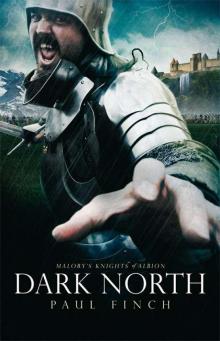 Dark North mkoa-3
Dark North mkoa-3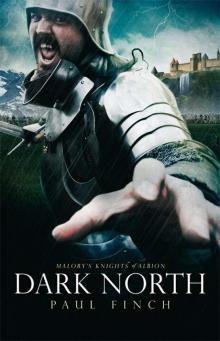 Dark North (Malory's Knights of Albion)
Dark North (Malory's Knights of Albion)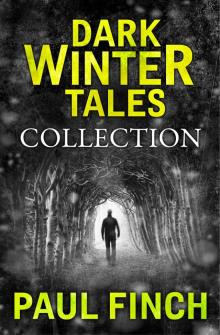 a collection of horror short stories
a collection of horror short stories Sacrifice
Sacrifice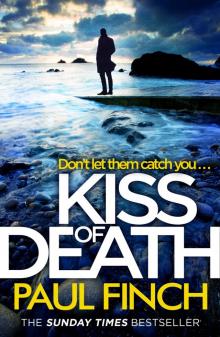 Kiss of Death
Kiss of Death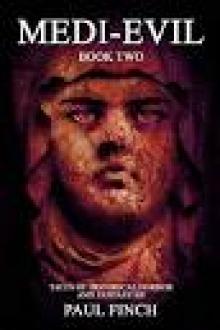 Medi-Evil 2
Medi-Evil 2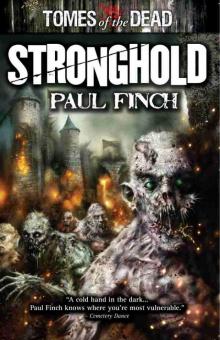 Stronghold
Stronghold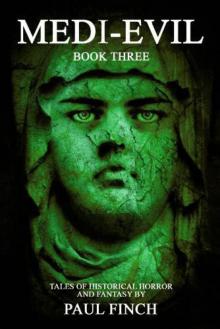 Medi-Evil 3
Medi-Evil 3 Dead Man Walking
Dead Man Walking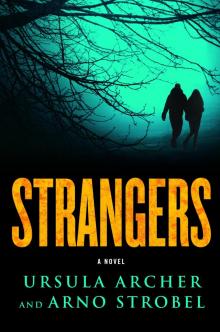 Strangers
Strangers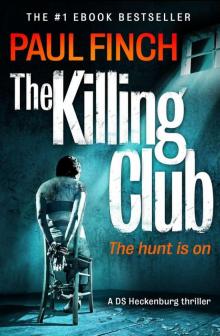 The Killing Club
The Killing Club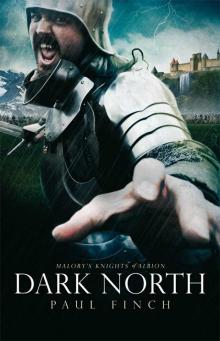 Dark North
Dark North A Wanted Man
A Wanted Man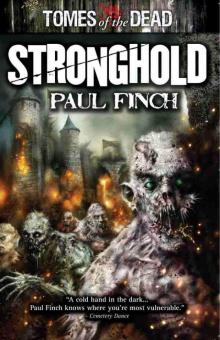 Stronghold (tomes of the dead)
Stronghold (tomes of the dead) Hunted
Hunted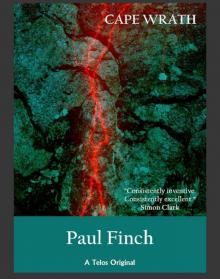 Cape Wrath
Cape Wrath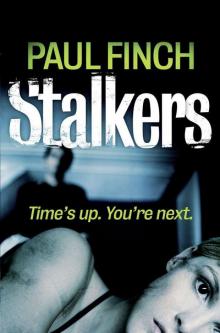 Stalkers
Stalkers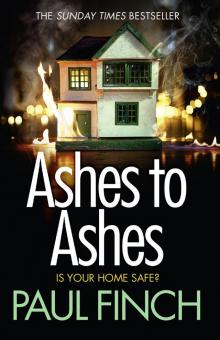 The Burning Man
The Burning Man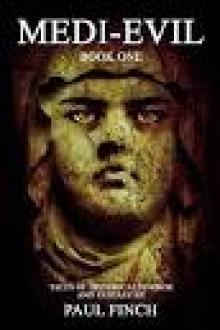 Medi-Evil 1
Medi-Evil 1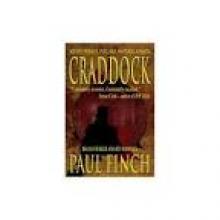 Craddock
Craddock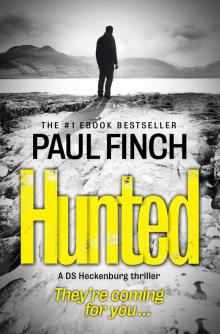 Hunted (Detective Mark Heckenburg Book 5)
Hunted (Detective Mark Heckenburg Book 5)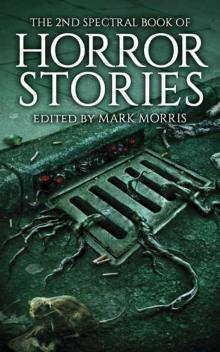 2nd Spectral Book of Horror Stories
2nd Spectral Book of Horror Stories The Chase
The Chase